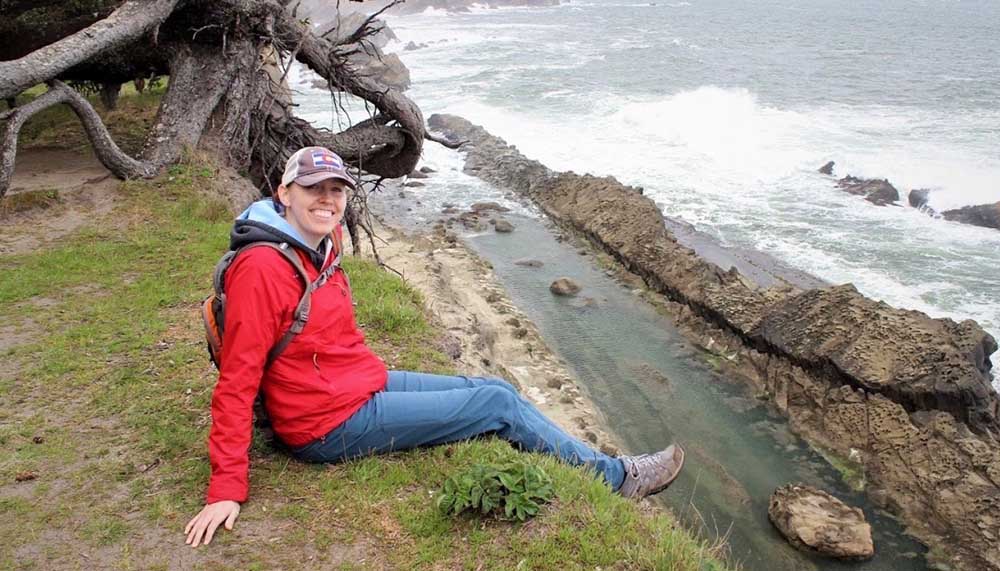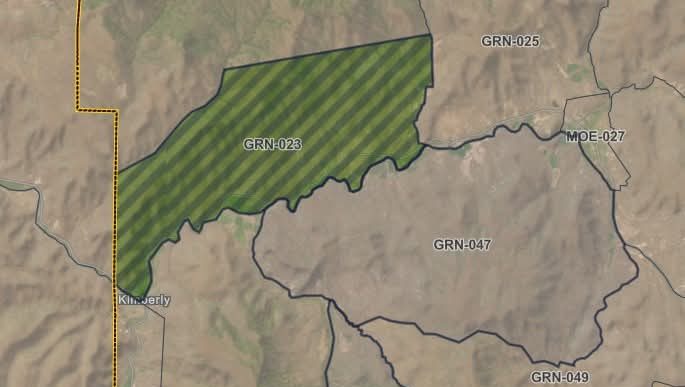Demand for traveling health care professionals increases amid pandemic
Published 11:00 am Thursday, March 25, 2021

- Brook Timothy, who was a traveling physical therapist for over three years before settling in John Day, enjoyed the communities and culture she experienced in traveling.
Traveling health care workers are a staple in rural health care — and have been popular everywhere during the pandemic.
Trending
While smaller hospitals typically rely on temporary workers to fill the gaps in their health care systems, these travelers have been in hot demand during the pandemic because larger hospitals have been overwhelmed throughout the country.
Derek Daly, CEO of Blue Mountain Hospital District in John Day, said 32 unique positions were filled by travelers in 2020. As of Feb. 3, the district had 275 employees with four travelers.
Daly said, with a small staff, the hospital was more proactive in bringing in travelers in case they had to backfill positions if someone got sick or had to quarantine. He said, however, it has been difficult to find nurses and respiratory specialists.
Trending
Vardan Rigby, the human resources director for the hospital district, said the pandemic has placed a lot of strain on the traveler market because of the drastic increase in demand for staff in big cities.
“(The pandemic) necessitates more nurses at hospitals, but it necessitates more nurses to replace those getting sick by treating patients,” Rigby said. “That has actually made it more difficult in certain positions for rural hospitals to gain access to travelers because the big hospitals in big systems are sucking them all up.”
A silver lining: Daly said many travelers had no desire to go “into the hornet’s nest” at large hospital’s already swamped with COVID-19.
Who are the travelers?
Daly said, when people hear the term traveling medical worker, they tend to immediately think of a doctor or nurse.
However, he said these travelers also include technicians and therapists who can hold almost any position in the health care profession, even managerial and administrative positions.
“The traveler industry has really exploded in recent years and has become a much bigger industry that spans far beyond just doctors and nurses,” Daly said.
Daly said they often fall into two camps: younger travelers excited to begin their career and those toward the end of their career.
Younger travelers get the chance to work at multiple hospitals and can transition easily from each location if they don’t have families to take along with them.
Travelers toward the end of their career get the advantage of choosing when and how long they want to work, he said.
“Sometimes we get people towards the end of their career that love the opportunity to work six months out of the year and pick their assignments where they go and have the break when they want it,” Daly said.
Rigby said organizations typically provide travelers to hospitals.
“There’s agencies out there like a temp agency that has a database of people they work with, and they are their employers,” Rigby said. “We reach out when we have needs and connect with these companies and pay that agency for the service they’re providing in giving us that traveler for a period of time.”
Daly added that there are also per diem travelers who provide short-term help, instead of 13- or 26-week assignments.
On the road again
Brook Timothy, a physical therapist who traveled for close to three and half years before settling in John Day, said she enjoyed the experience to move and work in different communities. She worked through six locations in the Pacific Northwest, mainly rural or remote areas.
“For me, as a physical therapist, I was introduced to many treatment styles,” Timothy said. “I felt really lucky because, at almost all of the places I went to, I picked up something new that I could use to help people.”
Jaime Paire, a traveling physical therapist who currently works in John Day, has been traveling since August 2019. Paire said learning new cultures, new techniques in physical therapy and making new friends everywhere she goes provides personal and professional benefits.
“You get to go through different settings of physical therapy because there’s so many areas you get to practice,” Paire said. “That’s what’s cool about being a traveler because you can kind of pick and choose where you want to go so, when you do settle down, you get an idea of what you want to do long term.”
Timothy said she was lucky with each community she worked in because the cultures and people she met were great and welcoming, but it made it difficult when it was time to say goodbye.
“You start to become a part of that community,” Timothy said. “Whenever I go to small towns, they have unique traditions and events that make you scratch your head, but they’re great most of the time.”









